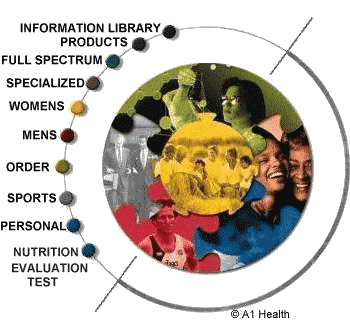COLLOIDAL MINERALS
Arsenic
Although most commonly known for its
toxic properties, arsenic (As), has been shown to have beneficial actions when
fed in very small amounts to laboratory animals. Numerous studies with rats,
hamsters, mini pigs, goats, and chicks have provided circumstantial evidence
suggesting that arsenic is essential, but its physiological role has not been
clearly defined. Recent work, however, indicates that arsenic may have a role
in methionine metabolism.
Deficiencies: The most impressive reported sign of arsenic deficiency
is death of goats during lactation because of disorders in heart muscle and,
to a lesser extent, skeletal muscle. The most consistent signs of arsenic deprivation
in rodents have been effects on methionine metabolism. Arsenic may be important
under certain circumstances in humans. For example, arsenic, independent of
omega-3 fatty acids, increases bleeding time. This imps that it may be a plausible
candidate for the unknown factor in fish responsible for increased bleeding
time. In addition, a recent human study suggested that arsenic homeostasis is
altered by hemodialysis, and that low serum arsenic is correlated with central
nervous system disorders, vascular disease, and cancer.
Diet recommendations: It is inappropriate at present to give dietary
recommendations for arsenic for humans because of questions of its essentiality.
Based on animal studies, however, amounts of arsenic in the diet that lead to
signs of arsenic deficiency can be extrapolated to humans. The suggested arsenic
requirement for animals is between 25 and 50 ng As/g (based on diets containing
4000 kcal/kg). Extrapolated to the human population, this dietary intake is
equal to 12.5 to 25 µg As/day. Human diets normally contain 12 to 50 µg As/day.
Thus, the postulated arsenic requirement for humans apparently can be met by
typical diets. However, there may be dietary situations where the requirement
for arsenic is not met (for example, low dietary arsenic coupled with an altered
methionine metabolism or hemodialysis).
Food sources: Arsenic (inorganic and organic) in the diet is contributed
by various foods including cereals and breads, 18.1%; starchy vegetables, 14.9%;
and meats and fish, 32.1%. About 20% of the daily intake of arsenic is inorganic.
Arsenic in water is almost all inorganic and most drinking water contains less
than 10 µg As/L and, typically, 2 to 3 µg/L. Drinking water can contribute 20
µg inorganic As/day.
Toxicity: Toxicity of organic arsenicals, including compounds such
as monomethylarsonic acid, dimethylarsenic acid, arsenobetaine, and arsenocholine,
is low. Inorganic forms are more toxic than organic forms of arsenic; generally
arsenite (+3) is more toxic than arsenate (+5). Signs of inorganic arsenic toxicity
include dermatosis, hematopoietic depression, liver damage, sensory disturbances,
peripheral neuritis, anorexia, and skin and internal cancers.
For further information:
Uthus, E.O. (1994) Arsenic essentiality and factors affecting its importance.
In: Arsenic Exposure and Health (Chappell, W.R., Abernathy, C.O. & Cothern,
C.R., eds.), pp. 199-208. Science and Technology Letters, Northwood, UK
Anke, M. (1986) Arsenic. In: Trace Elements in Human and Animal Nutrition
(Mertz, W., ed.), pp. 347-372. Academic Press, Orlando, FL.
RELATED ARTICLES
 Colloidal Minerals: How common is heavy metal poisoning ?
Colloidal Minerals: How common is heavy metal poisoning ?
 ANALYSIS OF TODDY ANALYSIS OF TODDY
 Is it not true that many of your
products contain toxic levels of certain metals, and how do you justify that? Is it not true that many of your
products contain toxic levels of certain metals, and how do you justify that?
 CHEMISTRY'S MIRACULOUS COLLOIDS CHEMISTRY'S MIRACULOUS COLLOIDS
BORON
 REQUEST YOUR FREE EAGLE PRODUCT INFORMATION PACK: INFOPACK@eagle-min.com REQUEST YOUR FREE EAGLE PRODUCT INFORMATION PACK: INFOPACK@eagle-min.com

Information Library|
Products|Full Spectrum|Specialized|Womens|Mens|Order|Sports|Personal|
INDEPENDENT
SupraLife Distributor
For personal service Call:
A1 Health
TOLL FREE ORDER EXPRESS HOT LINE :888-441-4184
9 AM Till 7PM EST

e-mail: info@colloidal-min.com
|
